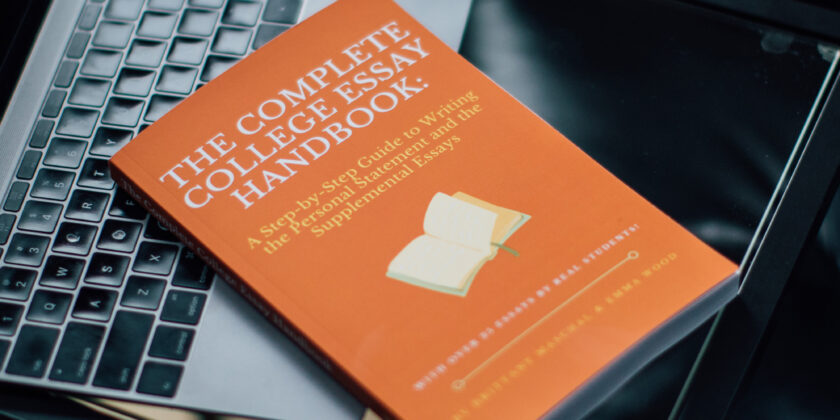
Common App: Can I submit my application before my recommenders submit their forms?
We get this question a lot, and it’s a good one! Here’s what the Common App has to say:
You are allowed to submit your application before your counselor or teachers submit their school forms whether they choose to do so online or on paper. The Common Application system allows recommendations to be submitted even after the application has been submitted.
Before you submit your application, please follow up with your teachers and counselors to ensure they will be able to complete and submit a recommendation prior to the school’s stated application deadline.
*Stay in the know! Subscribe*

Common Application Updates – Refresh August 1
From the Common App….
Over the past several years, we’ve marked the joyful occasion of a new application year by celebrating launch as Common App Day! August 1 is just around the corner, and we want to share a few last minute reminders so you and your students are prepared.
- Application refresh dates. The 2021-2022 first-year application will close to applicants and recommenders at 5 pm ET on July 28, 2022. The 2021-2022 transfer application will close to applicants and recommenders at 5 pm ET on July 29, 2022.
- Account rollover. Students will need to sign in and refresh their Common App accounts for the new cycle, which begins on August 1, 2022. Here are some reminders about how account rollover works for first-year and transfer students.
- Evolving the Application changes. Changes to the 2022-2023 application include revisions to questions related to gender and fee waivers to better reflect the needs of our students. You can view how the changes will take effect in this guide.
- Protecting student data. Each student who interacts with Common App trusts us to protect their personal identifiable information, and we take that responsibility seriously. Our privacy policy shares in detail what information we collect and the precaution we take to protect that information.
*Stay in the know! Subscribe*

Common Application Summer 2022 Refresh and Rollover
Each year on August 1, Common App launches the refreshed application with updated information, including any new questions and new colleges. Students will need to sign in and refresh their Common App accounts for the new cycle.
Many colleges change their questions from year to year, so if students started working on responses to college-specific questions, they will be deleted.
For more details about how account rollover works, be sure to reference these Solutions Center articles for first-year and transfer students, as well as tips located in the CA application guide.
Mark your calendars for the system refresh dates:
- The first-year application will close to applicants and recommenders at 5 pm ET on July 28, 2022.
- The transfer application will close to applicants and recommenders at 5 pm ET on July 29, 2022.
*Stay in the know! Subscribe*

How to Ace the Essay with Brittany Maschal
Our friends at GenHERation have a post up from our Fireside Chat! Read more here, and check out their programming while you’re at it!
And for all things college essay, check out our book, The Complete College Essay Handbook!!!
*Stay in the know! Subscribe*

Sunday 3/7: NACAC Virtual College Fair (STEM Focus)
The Common Application is collaborating with the National Association for College Admission Counseling to offer NACAC Virtual College Fairs.
—Event Info from the CA below:
The NACAC Virtual Colleges Fair for students interested in STEM majors and careers will take place this Sunday, March 7. Registration is free.
These fairs offer students an incredible opportunity to connect with colleges and universities in all 50 states and more than 15 countries. Hundreds of colleges will be available on each fair date to offer Zoom sessions and one-on-one appointments, so students can easily explore their options.
Students are encouraged to sign up now at virtualcollegefairs.org. They’ll want to start tagging the sessions they want to attend.
To help get the word out, please visit the counselor resources page for ready-made resources such as social media graphics and sample text. Also available are links to a how-to video, tips for STEM students and a PDF list of participating colleges.
As we all look for new ways to explore colleges, NACAC Virtual College Fairs offer an easy and accessible way to connect counselors, students, and families with colleges and universities around the world. We look forward to seeing you online!
*Stay in the know! Subscribe*

January Action Plan – By Grade
Seniors:
- If you have RD applications due in mid-January that you did not submit, finish those up ASAP. The same goes for 2/1 deadline apps; there is no reason to wait!
-
The process of applying to college is not over after you press submit, so keep checking those online portals! Some schools require a mid-term grade report as noted on the application instructions (found online). It can be helpful to generate that list and let your school counselor know so it is sent as soon as grades are released. Also, many schools require it even after you have been admitted.
-
Grades are still important. Even one grade below your “normal” can be cause for concern; we’ve had students receive letters from schools after they had been admitted for a grade that “dipped” too far, threatening their admission could be taken away. Avoid this by maintaining your GPA.
- If you were deferred, work on your deferral letter this month and aim to send it mid-month.
- Thank everyone who helped you with your college process (especially your parents!), and take some time to enjoy what is left of high school between now and the rest of your admissions results.
Juniors:
- Testing. Once you are in prep-mode it is best to just keep going. The sooner you are finished testing, the sooner you can begin to finalize your college list. If you have a preliminary list, February break is a great time to visits colleges. Plan some visits.
- Confirm your summer plans. Next summer is a wonderful opportunity to do something really meaningful (and perhaps even fun!) that will help you tell your story to colleges.
- Start to think about your senior year schedule. Do you know what you will be taking? Your senior classes should be the most challenging of your four years.
- Resolve to check your email daily. Why? Colleges communicate with students via email. Most schools track whether you open emails and if you click through them; more engagement is seen as more interest (schools use interest in the admissions process). Make checking and engaging with any college-related email a habit in 2021.
Sophomores & Freshmen:
- Are you planning to take SAT subject tests in May or June? If so, come up with a prep plan now.
- An impressive academic record is the most important admissions factor at most colleges. Study hard.
- Speaking of courses, when do you pick your courses for 11th grade? Keep in mind you want to take a more rigorous course schedule each year.
- Now is the time to build your story for college! Have you gotten more involved with any of your extracurricular activities? Have you thought about what you might want to major in? A great place to start exploring your academic interests is Khan Academy.
- One way that your “story” is conveyed in your app is through your resume. Work on your resume now.
- Many 2021 summer program applications will open soon. Begin thinking about your plans for summer 2021 now so you can get ahead of deadlines and work on applications if needed.
- Replace one hour of social media, Netflix, or TV per week with time on Ted ED. Explore what intrigues you! Maybe it’s the history of cheese, particle physics, or what makes a poem a poem. Whatever you find interesting, take some time to be intentional about learning more in the new year!
*Stay in the know! Subscribe*

New Schools Added to the Common App!
So many schools are now on the Common App for the 2020-2021 application year! We love knowing students will have fewer apps to fill out. You can find the full list of new members here — some popular new adds include:
Loyola U., Chicago
Auburn
Clemson
Coastal Carolina
U. Georgia
U. of Louisville
U. of South Florida
*Stay in the know! Subscribe*

Common Application Offline for Refresh: July 28-31
Rising Seniors Take Note:
This year, the 2019-2020 Common App for first-year applicants will be offline from July 28-31, 2020 in preparation for the launch of the 2020-2021 application on August 1.
You will not be able to access the app at this time. We suggest logging back in on August 1 and rolling over your account.
Questions? Email us!
*Stay in the know! Subscribe*

